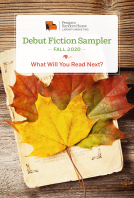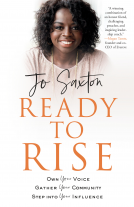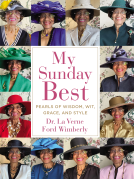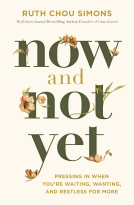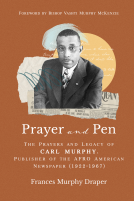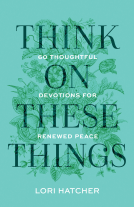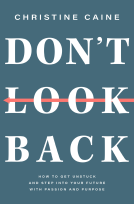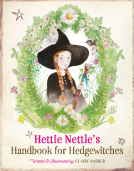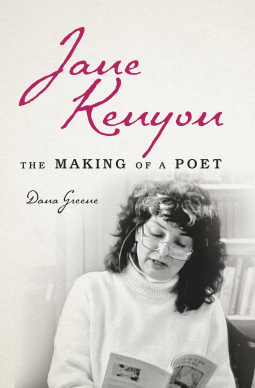
Jane Kenyon
The Making of a Poet
by Dana Greene
This title was previously available on NetGalley and is now archived.
Send NetGalley books directly to your Kindle or Kindle app
1
To read on a Kindle or Kindle app, please add kindle@netgalley.com as an approved email address to receive files in your Amazon account. Click here for step-by-step instructions.
2
Also find your Kindle email address within your Amazon account, and enter it here.
Pub Date Oct 10 2023 | Archive Date Nov 03 2023
Talking about this book? Use #JaneKenyon #NetGalley. More hashtag tips!
Description
Pleasure-loving, sarcastic, stubborn, determined, erotic, deeply sad--Jane Kenyon’s complexity and contradictions found expression in luminous poems that continue to attract a passionate following. Dana Greene draws on a wealth of personal correspondence and other newly available materials to delve into the origins, achievement, and legacy of Kenyon’s poetry and separate the artist’s life story from that of her husband, the award-winning poet Donald Hall.
Impacted by relatives’ depression during her isolated childhood, Kenyon found poetry at college, where writers like Robert Bly encouraged her development. Her graduate school marriage to the middle-aged Hall and subsequent move to New Hampshire had an enormous impact on her life, moods, and creativity. Immersed in poetry, Kenyon wrote about women’s lives, nature, death, mystical experiences, and melancholy--becoming, in her own words, an “advocate of the inner life.” Her breakthrough in the 1980s brought acclaim as “a born poet” and appearances in the New Yorker and elsewhere. Yet her ongoing success and artistic growth exacerbated strains in her marriage and failed to stave off depressive episodes that sometimes left her non-functional. Refusing to live out the stereotype of the mad woman poet, Kenyon sought treatment and confronted her illness in her work and in public while redoubling her personal dedication to finding pleasure in every fleeting moment. Prestigious fellowships, high-profile events, residencies, and media interviews had propelled her career to new heights when leukemia cut her life short and left her husband the loving but flawed curator of her memory and legacy.
Revelatory and insightful, Jane Kenyon offers the first full-length biography of the elusive poet and the unquiet life that shaped her art.
Advance Praise
“Dana Greene’s compulsively readable biography of Jane Kenyon tells the poignant story of the poet’s life, her development and career as a writer, and her long marriage to and partnership with poet Donald Hall. Overshadowed for many years, in life and after her death, by her more famous husband, Kenyon emerges in Greene’s narrative as a fiercely independent and gifted artist in her own right. Greene takes pains to illuminate the complex dynamics of their relationship and to showcase the quiet power and beauty of Jane Kenyon’s work, liberating Kenyon from the prevailing mythos that casts her as a lesser poet and enabling readers to see her anew. Jane Kenyon is a triumph.”--Angela Alaimo O’Donnell, author of Flannery O’Connor: Fiction Fired by Faith
Available Editions
| EDITION | Other Format |
| ISBN | 9780252045387 |
| PRICE | $29.95 (USD) |
| PAGES | 224 |
Links
Available on NetGalley
Featured Reviews
 Claudia R, Educator
Claudia R, Educator
Thank. you net galley for letting me read this biography of Jane Kenyon. I'm so glad someone has decided she is worthy of a biography. She is. Her battles with depression, religion, and spirituality are written about with compassion and common sense. Her marriage to Donald Hall is an important part of her life as a poet, and the author provides
insights as to its complexities and concerns. After reading this book, I once again picked up Kenyon's poems to enjoy them again and again. I always thank Kenyon for writing that famous poem,Having it out with Melancholy, and for being open with the reader about her depressions. The biographer gives context for the writing of the poems. A fine addition to my library.
 Nicole C, Educator
Nicole C, Educator
I am a huge fan of Jane Kenyon's poetry so reading this book was a delight--in particular I appreciated the close attention to her writing practice as well as her family and her marriage to Donald Hall, especially as for so many years his voice was the one that told of their relationship.
Jane Kenyon has been one of my favorite poets since I first read her work in college, and I was excited when I came across this bio.
Spanning her life and career, this look into Kenyon's life was insightful and riveting. While there isn't much information available about her early life, the details provided were clear and interesting with very little personal opinion skewing the read, which I appreciated.
I enjoyed the inner look at her relationship with Hall and the emphasis of Kenyon trying to find her independence, individuality, and voice in the midst of various constraints. I was fascinated by the literary community in which she found support and friendship, and the snippets of her poetry were beautifully timed and relevant. A solid read for anyone looking to expand their understanding of Kenyon's career and poetic trajectory.
Big thanks to the University of Illinois Press and NetGalley for providing an eARC in exchange for honest review consideration.
 Shari B, Reviewer
Shari B, Reviewer
Jane Kenyon was an incredibly talented poet who was overshadowed by her husband, poet Donald Hall. Even after her untimely death, he controlled the narrative of their life together and her life and work. This book seeks to put the spotlight on Jane Kenyon herself. Of course, her husband is a part of that story. They were married for over 20 years, he was her teacher, and an established poet when they began their relationship so he had an influence on her. But she had her own voice and style and her work deserves to be considered on its own, which this author sets out to do here. She states, "My intent in writing this biography was to comprehend this complex, talented, and ambitious woman, track how she became a poet, and link her creative work with the fullness and richness of her life." (p. ix)
She does this very well indeed. Reading this biography made me want to go get my hands on everything Kenyon wrote and dive right into it. I was fascinated by her life and her journey to poetry as well as her struggle to carve out time for her work and to have it taken seriously, even as she had to navigate a relationship with a needy husband and domestic duties. Some close friends were a lifeline both in her personal life and her writing life--this too is an important part of Jane Kenyon's multi-faceted story.
The book is very well written with some beautiful poetic sentences like this one: "She flourished in solitude and was consoled by silence." (p. 54)
This was a thoroughly enjoyable read--one that I will be thinking about for some time to come. Highly recommend. Five stars.
 Christina D, Educator
Christina D, Educator
The author wrote a fair, unbiased and beautifully written bio of the poet Jane Kenyon. I think there is great sensitivity and care throughout the book. It has inspired me to read more poetry of Kenyon. I also look forward to reading more books by Dana Greene. I am also impressed with all of the research gathered for this book.
The unspoken teaching of Kenyon’s poetry is that the joy in the given moment must be grasped. One must choose to live.
from Jane Kenyon by Dana Greene
I enjoyed this detailed biography of the poet Jane Kenyon which delves into her growth as a poet and her relationship with Donald Hall. It is the story of a woman battling with debilitating depression, a poet struggling to forge a career while in her husband’s shadow, a wife burdened her husband’s neediness. Her poems revealed the beauty of life while aware of its fragility.
Kenyon grew up in rural Ann Arbor where she gloried in nature while contending with distant parents, her mother manic-depressive. She rejected their Methodist faith focused on rules and the next world. She attended the University of Michigan where she took a class with Donald Hall and subsequentially changed her major to English and creative writing. After a failed love affair, Hall sought her out. Hall was nineteen years her senior, divorced, adrift and needy. They realized they needed each other and married.
The couple moved to Hall’s ancestral home in New Hampshire, which had a major impact on Kenyon’s life. The rural beauty and solitude were a balm. When the local Methodist church pastor spoke of Rilke, the couple knew they had found a spiritual home. The pastor preached a God of forgiveness and love and prevenient grace open to all who accept it, and Kenyon’s faith blossomed.
The God that our minister here talked about in his sermons was a God who overcomes with love, not a God of rules and prohibitions. This was a God who, if you ask, forgives you no matter how far down in the well you are. If I didn’t believe that I couldn’t live.
Kenyon, quoted in Jane Kenyon by Dana Greene
Kenyon struggled to have a life separate from Hall’s, complicated as they were both poets. He was demanding and possessive. Her women friends provided an important support for her work, especially the women in her critique group. “My women friends in particular give me the courage I need to just be who I am,” she remarked. Her poetry reflected her struggles with depression.
Kenyon became recognized and won numerous awards. Bill Moyers Journal featured Kenyon and Hall, which propagated the myth of an idyllic marriage of two artists, a myth Hall promoted.
Although Hall dealt with recurrent cancer, he survived Kenyon who died at age 47 from leukemia.
I came to this book with only the most general knowledge of Kenyon, particularly articles I read after her death. I found this book to be engrossing and engaging, and it has spurred my interest in reading more of Kenyon’s poetry.
Thanks to the publisher for a free book.
 Kevin F, Book Trade Professional
Kevin F, Book Trade Professional
As a reader of Jane Kenyon’s poetry, I have wished for a biography. That there hasn’t been an accessible book examining her work and life is a disservice to a truly influential poet of the late twentieth century. Dana Greene has given us that book. Greene has placed Jane Kenyon’s life and work in the foreground and pulled her away from the shadow of her husband, poet Donald Hall.
Greene’s meticulously researched book approaches Kenyon’s life and work through her spiritual life, a spirituality expressed through her poems, her writing, and her interactions with those closest to her. This unique approach honors Kenyon’s work in a way that a purely literary examination of Kenyon would not. Greene connects Kenyon’s self-described expression of “the interior” in her poetry. Her use of concrete details found in small, personal, and ordinary places was the foundation for an expansive poetry. One that does not easily fit within literary poetic expectations. A long way of saying she was a unique and influential voice.
This book is an important look behind the work of an unpretentious poet who never sought approval from the literary highbrow. As is true of any writer, she hoped to leave a legacy. She achieved that through poetry that allows readers to recognize their own similar experiences. Work that invites us to value the questions we ask ourselves as much, if not more than, any answers we may find.
 Emma P, Reviewer
Emma P, Reviewer
An absolutely fascinating insight into the life of poet Jane Kenyon. Incredibly readable and carefully researched, This biography delves into the life of Jane in her own right, whilst acknowledging the influence of her husband, yet gives space to Jane herself.
When reading biographies, I prefer reading about people I don't know or barely know anything about. Jane Kenyon is a name I've heard over the past year as I've gotten more into poetry, but I never experienced her works. Having read this, I'm looking forward to deep dive into her works the way she wanted them to be read.
 Michelle K, Reviewer
Michelle K, Reviewer
Jane Kenyon
The Making of a Poet
by Dana Greene
Pub Date 10 Oct 2023
University of Illinois Press
Biographies & Memoirs| Nonfiction \(Adult\)| Poetry
Netgalley and University of Illinois Press provided me with a copy of Jane Kenyon: The Making of a Poet for review:
A pleasure-loving, sarcastic, stubborn, determined, erotic, deeply sad poet, Jane Kenyon has written luminous poems that continue to captivate readers. To separate Kenyon's life story from that of her husband, the award-winning poet Donald Hall, Dana Greene draws on a wealth of correspondence and other newly available materials.
After being impacted by relatives' depression during her childhood, Kenyon discovered poetry at college, where writers like Robert Bly encouraged her. In New Hampshire, she married the middle-aged Hall and moved into a new life. She wrote about women's lives, nature, death, mystical experiences, and melancholy, becoming, in her own words, an "advocate of the inner life." She appeared in the New Yorker and other publications after her breakthrough in the 1980s. She failed to stave off depressive episodes that sometimes rendered her non-functional despite her ongoing success and artistic growth. Kenyon refused to conform to the stereotype of the mad woman poet, seeking treatment and confronting her illness in her work and in public while redoubling her dedication to finding enjoyment in every moment.
In the decades leading up to her death from leukemia, she had earned prestigious fellowships, high-profile events, residencies, and media interviews.
In this insightful biography, Jane Kenyon uncovers the unquiet life that shaped the poet's work.
I give Jane Kenyon's The Making of a Poet four out of five stars!
Happy Reading!
This was a deeply moving biography of Jane Kenyon, based on the often limited source material. Kenyon did not leave behind a lot of personal reflections or memoirs, and her papers were posthumously curated by her husband, the poet Donald Hall. Not everyone from Kenyon's past responded to the author's requests for interviews, so there are gaps that will remain unfilled.
I think the book benefits from the facts that the author is an academic (and cites her sources prodigiously) but did not seem to know Kenyon personally. She cannot always conceal her dislike for Donald Hall, but it never rises to the level of venom that, say, Sylvia Plath biographers and hagiographers tend to turn on Ted Hughes.
Thankfully, Graywolf Press allowed quotation from Kenyon's poems, so that it is possible to read the lyrics in the context of discussion. I hope that this volume will bring a new generation of readers to Jane Kenyon, who deserves a place alongside the other renowned American poets of the latter half of the 20th century.
Thank you to the publishers and NetGalley for the opportunity to review a temporary digital ARC in exchange for an unbiased review.
 Margot S, Reviewer
Margot S, Reviewer
A look at the life and work of Jane Kenyon who had the (mis)fortune of being married to the older, more famous poet Donald Hall. Throughout their marriage, Hall overshadowed her and built a myth of their harmonious poet marriage that fascinated the public. Greene ties to consider Kenyon in her own right, and she does a good job tracing Kenyon's biography and development as a poet. It includes her spiritual life, her lifelong struggle with depression, and her relationship with Hall which Kenyon did find confining and often chafed against. I like Kenyon's poetry and her dedication to the "inner life." And I admire Greene's project but there there's much about Kenyon that remains unknown. And Hall inevitably still looms large. It doesn't help he was executor of Kenyon's archive and so was able to control her image after she died. Green pieces together and makes a good argument for the importance of Kenyon to American poetry, and yet, something still feels missing.
 Book Trade Professional 1025471
Book Trade Professional 1025471
This is a very sympathetic and respectful biography of Jane Kenyon that does her justice by facing her emotional difficulties (depression) and the challenges of living with a more famous male poet. As well, it does a good job of examining the arc of the development of her Christian faith--something that I don't share but that I can nevertheless appreciate. There's a reasonable amount of analysis of poems with a biographical focus. I also found the details about her publishing career to be of great interest, as well as the importance of her women poet friends in critiquing and supporting her work. This is a capably (if not elegantly) written book that shows a devotion to its subject. Rounding up from 3.5.

